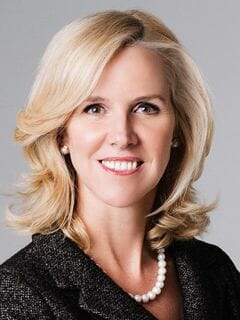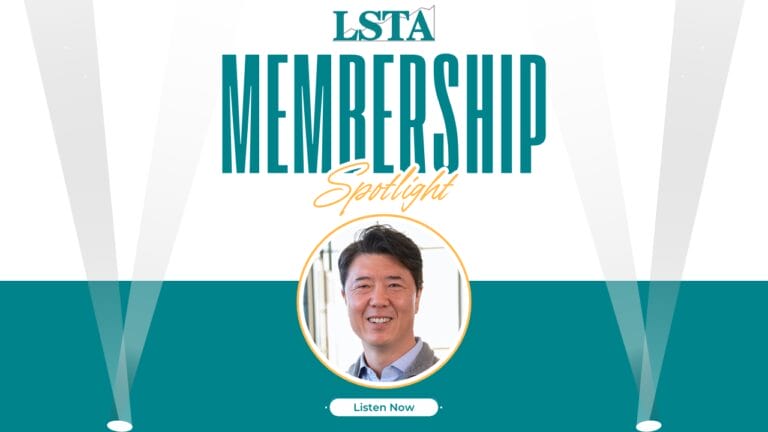March 31, 2022 - The LSTA-LMA Joint London Conference was the last in-person event the LSTA hosted before the pandemic lockdown in 2020. It was fitting, therefore, that it was the first in-person event hosted by the LSTA as the pandemic is waning and restrictions are generally being lifted globally. Economist, Trevor Williams of TW Research, kicked off the day by giving an overview of the challenges facing the global economy, including inflation, the Russia-Ukraine war, and supply chain disruptions. During the US and European loan markets panel, which was chaired by Clifton Prabhu of Credit Agricole, with Jeremy Selway of Deutsche Bank, James Vanek of Apollo, Fiona Hagdrup of M&G Investments, and Lewis Grimm of Jones Day, it was noted that European loan market participants were hoping that, despite the chilling effects of the Russia-Ukraine war, which had basically closed the window for doing loan deals, the market would stabilize in the coming weeks and there would be new deals before Easter. Concerns remain in both markets, however, about deal term trends which remain borrower friendly on both sides of the pond, and with sponsor-led credit agreement innovation continuing, it seemed that deal terms would remain aggressive for lenders for the foreseeable future. An example of this was the voting cap concept introduced in the Ancestry.com deal. It is becoming more common in the US, but fortunately, in Europe, it is still very rarely seen. European deals are more focused on capping the percentage of loans that can be assigned to one lender. Overall, sentiment was muted with 67% of attendees believing that the US loan market would remain flat for the year.
The direct lending panel, chaired by Thomas Mellor of Morgan Lewis who was joined by David Golub of Golub Capital and Eric Capp of Pemberton Asset Management, noted that traditionally, direct lending is perceived to have a competitive advantage when compared to the broadly syndicated loan market for certain reasons, including (i) the absence of flex which means there is certainty of pricing, (ii) there is more flexibility to execute bespoke deals, (iii) there is greater appetite to invest in choppy and down markets, and (iv) borrowers need not share their confidential information with large syndicates. The European direct lending market is still not as mature as the US market with European direct lending remaining under-penetrated. 71% of attendees believe that the current inflationary environment will last 1-2 years (but as noted in the earlier panel inflation in the near and medium term is not necessarily a bad thing for the loan market) with nearly half expecting it to be in the range of 4-6% in 2023. But certain direct lenders – at least in the US are preparing for a longer period of inflation.
Attention was next directed to ESG issues – a topic that came out throughout the day. Sam Lukaitis of Carlyle, Sabrina Fox of ELFA and Tamara Cizsecki and Greg Brown of Allen & Overy joined the LSTA’s Tess Virmani to discuss the initial steps the loan market has taken in increasing borrower reporting of ESG information. While these steps are important, given the growing sophistication of asset owners and the regulatory requirements set to come into force in the next couple of years, standardized reporting focusing on quantitative and qualitative data is needed. The ESG topic was picked up again in the session dedicated to sustainable finance. The LMA’s Hannah Vanstone led a session looking at the spectacular growth in sustainability linked lending – globally and in the US in 2021 – and highlighting the key issues for interested market participants. Panelists Alice Jiang of Credit Suisse, Jonathan Gardiner of Bloomberg and Robert Lewis of Sidley Austin explained that avoiding potential greenwashing claims through ensuring the materiality of chosen KPIs, the ambitiousness of the associated sustainability performance targets and the use of external verification over the life of the loan are the most common conversations being had on new sustainability linked loan deals.
David Chmiel, Founder of Global Torchlight Limited, gave the afternoon keynote speech, “Is Disorder the New Normal? Geopolitics and the Loan Market in 2022”. Chmiel highlighted certain international political trends and how current events may impact them. Focusing on the war in the Ukraine, he examined the political consequences of economic uncertainty at a time when domestic politics in leading economies are divided. The events in the Ukraine have been shocking – of course because of the scale of human suffering – but also because Putin has flagrantly ignored the rights of sovereign states. Chmiel questioned the extent governments and businesses could have prepared for this. A poll conducted the month before the invasion, revealed that the majority of Europeans polled in France, Germany, Italy, Poland, Romaine, and Sweden all thought a Russian invasion was likely.
The LMA’s Keith Taylor and the LSTA’s Tess Virmani gave a brief update on the state of LIBOR transition. While the first stages of transition have been an undoubted success, focus on remediation of US dollar loan exposure in the US and Europe must stay top of mind and see the active efforts of all market participants to ensure a successful complete transition away from LIBOR at the end of June 2023.
Ken Rivlin of Allen & Overy and Laura Douglas of Clifford Chance closed the conference with a discussion of regulatory issues. Financial institutions were cautioned to be wary of the Russian economic sanctions, for it was easy for the unwary to get caught up in them. The current Russian sanctions were not like those imposed on, for example, Cuba, because certain businesses could still operate in Russia; however, even if companies were in compliance with the US sanctions, they had to consider the risk of reputational harm should they continue to do business there, the views of their shareholders, and even their customers. Although Russian lenders were not really prevalent in the US loan market, US loan market participants were cautioned that if China were similarly sanctioned it would be a far trickier situation because they were lenders in the US loan market.
Members are encouraged to attend on May 11th when the LSTA-LMA host their joint NYC conference. Click here for the London conference slides.







